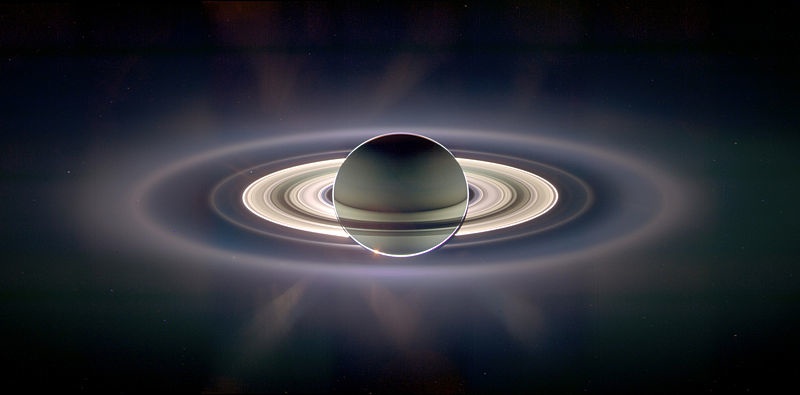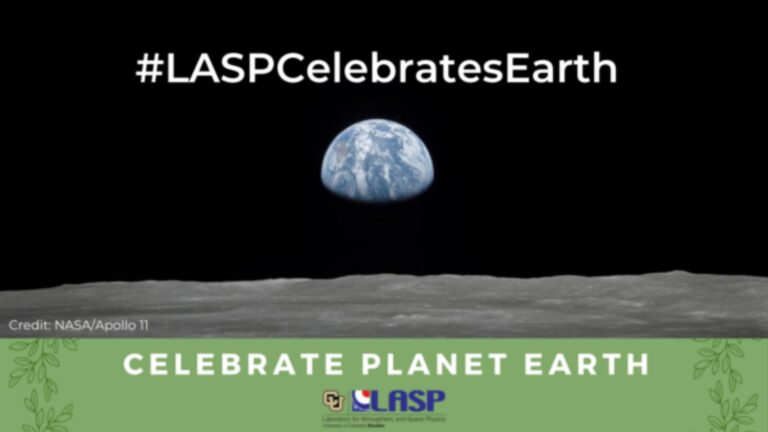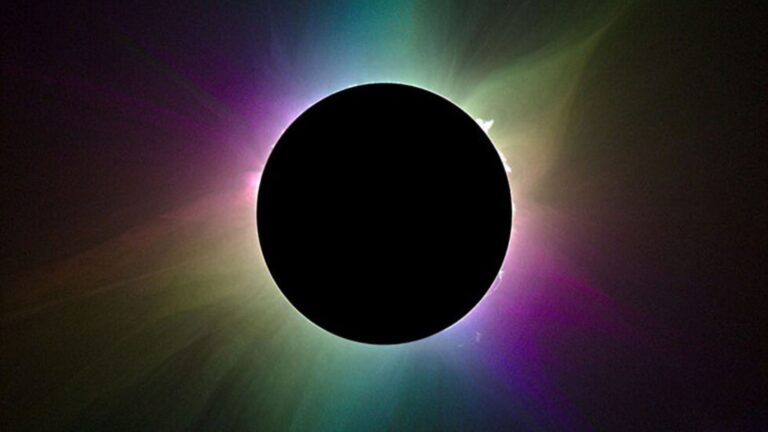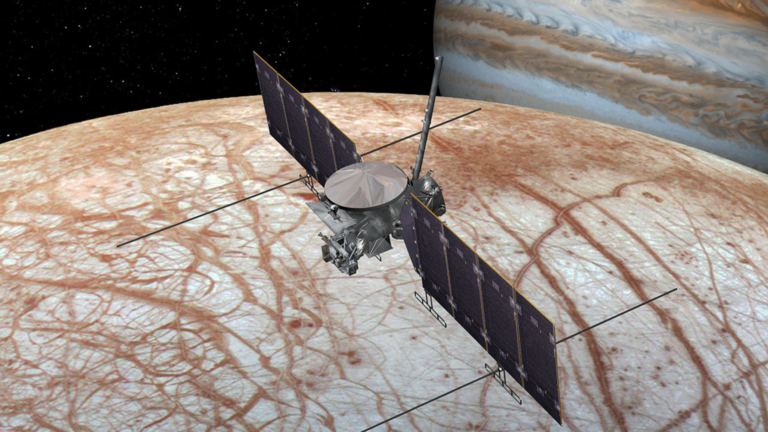
Using data from the NASA Cassini mission, a team of scientists led by LASP researcher Sean Hsu has successfully modeled dust streams being expelled from Saturn at speeds of more than 62 miles (100 km) per second. The data, taken from the Cosmic Dust Analyzer and the magnetometer on board Cassini, provide new information about the sources of the dust, as well as interactions within the mix of subatomic particles in which the charged dust is immersed, called dusty plasma.
Hsu and his colleagues found that the dust particles acquire an electric charge and become subjected to the magnetic forces of both Saturn and the constant stream of particles coming from the Sun. The resulting electromagnetic forces are sufficient to overcome the attraction to the giant planet and dictate the behavior of the dust particles, which may trace their origins to meteor collisions with Saturn’s moons and rings.
The acceleration of dust particles in dusty plasma is a growing area of interest in planetary science and has implications concerning the origins of the solar system and star formation. Hsu works with LASP scientist Mihály Horányi at the Colorado Center for Lunar Dust and Atmospheric Studies (CCLDAS), where researchers examine the electrostatically charged lunar dust and dusty plasmas, as well as their effects on human and mechanical exploration of the lunar surface.
Citations
Hsu, H.-W., S. Kempf, F. Postberg, M. Trieloff, M. Burton, M. Roy, G. Moragas-Klostermeyer, and R. Srama (2011), Cassini dust stream particle measurements during the first three orbits at Saturn, J. Geophys. Res., 116, A08213, doi:10.1029/2010JA015959.
Hsu, H.-W., F. Postberg, S. Kempf, M. Trieloff, M. Burton, M. Roy, G. Moragas-Klostermeyer, and R. Srama (2011), Stream particles as the probe of the dust-plasma-magnetosphere interaction at Saturn, J. Geophys. Res., 116, A09215, doi:10.1029/2011JA016488.
Contacts
Sean Hsu, lead author: 303-492-8537 or Sean.Hsu@lasp.colorado.edu
Stephanie Renfrow, LASP press office: 303-735-5814 or Stephanie.Renfrow@lasp.colorado.edu



